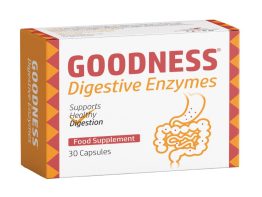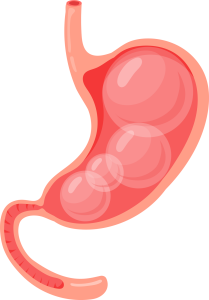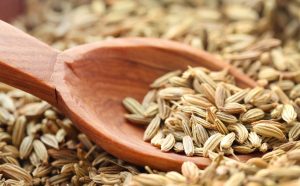Eating healthy foods like fruits, vegetables, grains, and legumes can lead to uncomfortable digestive symptoms. This is often due to FODMAP sensitivity, a condition in which the body struggles to break down certain carbohydrates. These carbohydrates, known collectively as FODMAPs (Fermentable Oligosaccharides, Disaccharides, Monosaccharides, and Polyols), are not fully absorbed in the small intestine and cause digestive issues such as bloating, gas, abdominal pain, and diarrhea.
Managing FODMAP sensitivity can be difficult, as it requires avoiding or limiting many foods that are otherwise considered healthy. However, digestive enzymes can offer a solution. In this article, we will explore FODMAP sensitivity in detail, discuss how various digestive enzymes can help manage it, and conclude with how Goodness Digestive Enzymes offer an effective solution.
What is FODMAP Sensitivity?
FODMAPs are a group of poorly absorbed carbohydrates in the small intestine. When they reach the colon, they are fermented by gut bacteria, producing gas and pulling water into the bowel, leading to symptoms such as:
- Bloating and gas: Gut bacteria ferment FODMAPs, producing excess gas, leading to bloating and discomfort.
- Abdominal pain: Gas buildup and increased water content can cause cramps and discomfort.
- Diarrhea or constipation: The fermentation process can alter bowel movements, causing diarrhea or constipation in sensitive individuals.
The types of FODMAPs include:
- Oligosaccharides: Found in foods like wheat, onions, garlic, and legumes. They include fructans and galacto-oligosaccharides (GOS).
- Disaccharides: Lactose, the sugar found in milk and dairy products, is a common disaccharide FODMAP.
- Monosaccharides: Fructose, found in high-fructose fruits, honey, and some vegetables.
- Polyols: Sugar alcohols, like sorbitol and mannitol, are found in certain fruits, vegetables, and artificial sweeteners.
Even small amounts of these carbohydrates can cause symptoms for individuals with FODMAP sensitivity. To manage symptoms, the low-FODMAP diet, which restricts high-FODMAP foods, is commonly used. However, this diet can be very restrictive, which is where digestive enzymes come into play.
How Digestive Enzymes Help Manage FODMAP Sensitivity
Digestive enzymes are proteins that help break down food into smaller, absorbable molecules. Certain enzymes target specific FODMAPs, aiding in their digestion and reducing the fermentation that causes uncomfortable symptoms. Here are the key enzymes that can help manage FODMAP sensitivity:
1. Alpha-Galactosidase
Alpha-galactosidase is a key enzyme for breaking down oligosaccharides, particularly those found in beans, legumes, and certain vegetables like onions and garlic. These oligosaccharides are high in FODMAPs and can lead to gas and bloating in sensitive individuals.
How it works: Alpha-galactosidase breaks down the complex sugars in oligosaccharides before they reach the large intestine, preventing fermentation by gut bacteria. This helps reduce gas production, bloating, and discomfort, making it easier to enjoy foods like beans and cruciferous vegetables without digestive issues.
2. Lactase
Lactase is the enzyme that breaks down lactose, the disaccharide found in milk and dairy products. Lactose intolerance is a common FODMAP sensitivity, leading to symptoms like bloating, gas, and diarrhea when dairy is consumed.
How it works: Lactase breaks down lactose into glucose and galactose, two simpler sugars easily absorbed by the body. Supplementing with lactase allows individuals with lactose intolerance to consume dairy without experiencing digestive discomfort.
3. Amylase
Amylase is an enzyme that breaks down starches into simpler sugars like glucose. While amylase does not directly target FODMAPs, it helps improve overall carbohydrate digestion, reducing the likelihood of undigested starches fermenting in the large intestine.
How it works: By breaking down starches more efficiently, amylase helps reduce the overall fermentable carbohydrate load in the intestines. This can prevent excess gas and bloating, especially when consuming meals that combine FODMAPs with starchy foods.
4. Invertase
Invertase, or sucrase, breaks down sucrose (table sugar) into glucose and fructose. While it primarily works on sucrose, improving the digestion of sugars can help reduce the symptoms of FODMAP sensitivity.
How it works: Invertase aids in the digestion of sucrose, ensuring that sugars are fully absorbed before they reach the large intestine, where they could otherwise ferment and produce gas. This helps minimize bloating and discomfort associated with FODMAP sensitivity.
5. Xylanase
Xylanase breaks down hemicellulose, a complex carbohydrate found in plant cell walls, particularly grains and vegetables. It helps reduce the fiber load that can exacerbate symptoms in individuals with FODMAP sensitivity.
How it works: By breaking down hemicellulose, xylanase prevents excessive fermentation in the large intestine. This is particularly useful for individuals sensitive to FODMAPs found in fibrous vegetables and whole grains, helping to reduce bloating and gas.
6. Pectinase
Pectinase breaks down pectin, a fiber in high-fructose fruits like apples, pears, and citrus. These fruits are often problematic for individuals with FODMAP sensitivity.
How it works: This enzyme breaks down pectin, reducing the amount of undigested fiber reaching the colon, which helps to minimize fermentation and the associated gas production.
7. Hemicellulase
Hemicellulase breaks down hemicellulose, another component of plant cell walls. Like xylanase, this enzyme helps reduce the fiber load, preventing the fermentation of poorly digested carbohydrates in the large intestine.
How it works: Hemicellulase breaks down hemicellulose into simpler sugars that are easier to absorb, reducing the amount of undigested material that can cause bloating and discomfort in individuals with FODMAP sensitivity.
8. Lipase
Lipase breaks down fats into fatty acids and glycerol, helping the body digest dietary fats more efficiently. While not directly related to FODMAPs, efficient fat digestion can help reduce overall digestive strain and discomfort.
How it works: Lipase helps alleviate some discomfort associated with meals that combine fats with high-FODMAP foods by ensuring that fats are properly digested and absorbed. This can help prevent the bloating and discomfort that often accompanies mixed meals.
How Goodness Digestive Enzymes Help Manage FODMAP Sensitivity
Goodness Digestive Enzymes provides a comprehensive solution for individuals dealing with FODMAP sensitivity by combining a potent blend of enzymes that target the specific carbohydrates responsible for digestive discomfort. These enzymes work synergistically to break down complex carbohydrates, sugars, and fibers that are typically difficult to digest, helping to prevent the fermentation process that leads to gas, bloating, and abdominal pain. With key ingredients like alpha-galactosidase, which targets oligosaccharides in beans and vegetables, and lactase, which aids in breaking down lactose in dairy, the formulation ensures that these common FODMAP triggers are efficiently digested before they reach the large intestine, where fermentation would normally occur. Enzymes like amylase and glucoamylase further enhance the digestion of starches and complex carbohydrates, ensuring that even meals high in FODMAPs can be tolerated with less discomfort. Additionally, xylanase and hemicellulase help break down the fibers in plant-based foods, preventing excessive gas buildup. By tackling the various sources of fermentable carbohydrates with a broad spectrum of enzymes, Goodness Digestive Enzymes not only provides immediate relief from FODMAP-related symptoms but also supports long-term digestive health, allowing individuals to enjoy a more varied and balanced diet without the constant fear of triggering digestive distress. This powerful enzyme blend offers a holistic and practical approach to managing FODMAP sensitivity, making it a vital tool for anyone struggling with the dietary restrictions and discomfort associated with this condition.
-
Product on sale
 Goodness Digestive EnzymesOriginal price was: $ 29.95.$ 25.95Current price is: $ 25.95.
Goodness Digestive EnzymesOriginal price was: $ 29.95.$ 25.95Current price is: $ 25.95.






